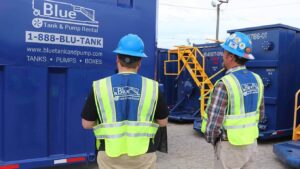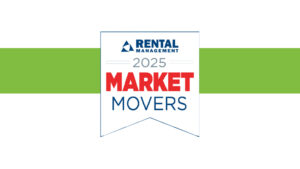Written by Wayne Harris, President & CEO of Point-of-Rental Systems
Prospective rental software buyers often ask why they should spend money on rental management software. The real question they are asking is how they can quantify the return on investment. Part of the answer is easy to measure. Mathematics performed by a computer system ensures that rental fees and sales prices are correctly computed as well as overtime charges, taxes, and fees. If you conservatively figured an employee was 95% error free, that would still mean that a computer calculation will save you 5% on your gross revenue.
Besides accuracy, a computer system provides efficiency. Handwriting a contract might not seem to take long, but the follow on processes that happen afterward are very time consuming. Do late charges get added on correctly or do you find it easier to waive them without a computer automatically tacking them onto the bill? Manually filing and retrieving paperwork is obviously a time waster, but the real benefit occurs during billing. Most of today’s rental software systems automate the entire invoicing process with the option of emailing or faxing statements, and rental software systems usually have the ability to integrate with your current accounting software. Monthly statements are very time consuming whether you are manually computing or manually entering invoices into an accounting system. How many hours a month are spent on those functions? Multiply those hours by your average wage and add that to your bottom line.
The value of a rental software system really shines when it comes to keeping track of things. This really came to light when my parents purchased rental management software for their rental store in 1986. Within six months, the software determined that equipment was missing and could easily follow the audit trail to see when it had last been at the store. After a little more looking, it was determined that an employee had been stealing equipment. The computer was instrumental in determining that the equipment wasn’t just “lost.”
Maintenance is something that is easy to overlook, but it only takes one blown engine to figure out that it is costly to miss. The rental software will remind, schedule, and keep track of all the maintenance on your equipment. Not only will that save you money in costly repairs, it will also increase your revenue because your items are in good shape and ready to rent.
While these obvious money savers are easy to see, most people don’t count opportunity costs. Opportunity costs are defined as what was given up to select the choice you did. Some people think that a computer system won’t save them money because they do the work themselves and they won’t fire themselves. However, the real cost is found in opportunity costs. If the owners spend five hours a week keeping up a manual system, what could they be doing instead? If you spent an extra five hours making sales calls, researching equipment, keeping up on other jobs, what would be the bottom line impact to your company?
Rental management software will increase your bottom line profits in many other ways. I could go on and on about other benefits of technology like website integration, mobile tracking, and automated processes. However, if you were simply to add up the increased revenue and decreased expenses from just the points above, you will come to the conclusion that investing in a rental management software system is a no-brainer. Yet still, questions loom in the minds of prospective buyers. Will it be too hard for us to adapt? How can we ever make such a big transition? How much should I budget for this? What system should I buy? My advice is to poll your peers. Talk to trusted peers in the industry or search out online forums on the topic. Do your homework thoroughly because, yes, it is a big investment and choosing the wrong rental software can be quite costly. But fear of the unknown is only fear until it is known. Armed with advice, statistics, and budget analysis, you will be ready to make a solid choice with confidence.



